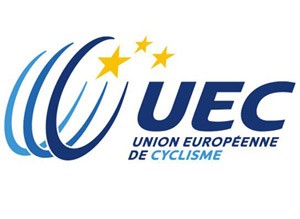Fourteen UEC delegates given mandate to vote for presidential challenger
 Brian Cookson has, in theory at least, secured a third of the delegates for the upcoming UCI presidential election today, with the Briton winning a crucial European Cycling Union (UEC) vote on the matter.
Brian Cookson has, in theory at least, secured a third of the delegates for the upcoming UCI presidential election today, with the Briton winning a crucial European Cycling Union (UEC) vote on the matter.
A total of 41 delegates voted at the UEC exceptional general assembly held in Zurich today, with 27 of those deciding to back Cookson and ten giving their preference to McQuaid.
The UEC has fourteen delegates out of 42 at the UCI presidential election later this month and those are expected to follow the sentiment of today’s outcome and vote together for Cookson.
However while the result is a significant one for the British Cycling president, he needs to keep the pressure on and chase delegate votes around the world.
The September 27th vote is secret, making it theoretically possible for some of the fourteen UEC delegates to decide not to follow the mandate determined today.
While many delegates and confederations have not yet determined how they will vote, it is thought that Asia will back McQuaid. Australian and New Zealand, two of the three Oceania federations, have said that their delegates will vote for Cookson.
If the delegates do indeed follow the directions given, today’s news means that Cookson has sixteen out of the 22 votes he needs to become the next UCI president. If McQuaid does indeed have the full Asian vote, he has nine delegates.
Of the remaining delegates, seven are from Africa, nine from America and one from Fiji.
Earlier today Cookson pledged that he would only take up the role as president if he has a majority in the September 27th election. The commitment was in response to claims from McQuaid that he was seeking to sidestep an election by having the latter’s nomination ruled invalid.
While questions exist about whether or not McQuaid’s backing by the Moroccan and Thai federations follow the provisions of Article 51.1 of the UCI Constitution, Cookson has said that even if he is ultimately the sole candidate, that he will only accept the role if he has the support of the majority of the delegates.
Article 51.1 has generally been interpreted as requiring a candidate’s home federation to nominate them, although McQuaid disputes this. He originally sought backing from Cycling Ireland, the federation of his birth, and later Swiss Cycling, the federation of the country where he lives, but does not have the backing of either.
His request was rejected by Cycling Ireland’s members in an EGM, while Swiss Cycling withdrew their nomination after a legal challenge.
The UEC meeting also saw the members vote on proposed amendments to Article 51.1. These would either have enabled any two federations to nominate a candidate, or indeed allowed the incumbent president not to need nomination at all.
The proposals, which were interpreted as attempts to help McQuaid’s re-election, were rejected by the UEC today. With the European Cycling Union’s votes representing one third of the 42 delegates and a two thirds majority being needed to pass those proposed changes, it seems almost certain that those modifications to Article 51.1 will not happen.
The UCI has rejected the requests of five federations to allow the Court of Arbitration for Sport to determine if McQuaid’s interpretation of Article 51.1 is correct. Those federations have raised the possibility of a legal challenge if he goes on to win the election while relying on an uncertain nomination.